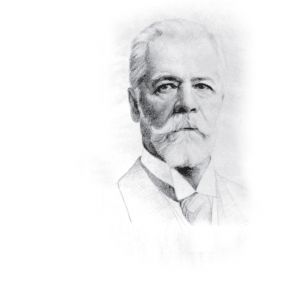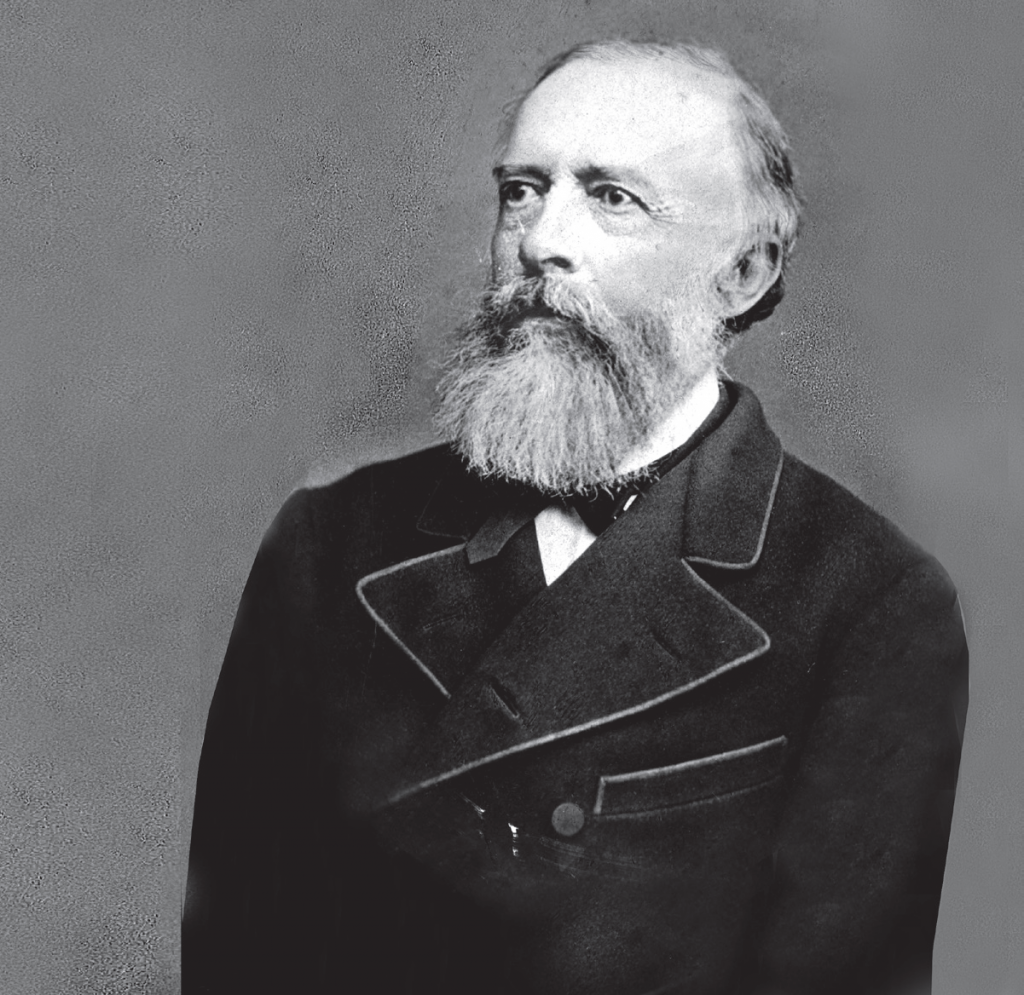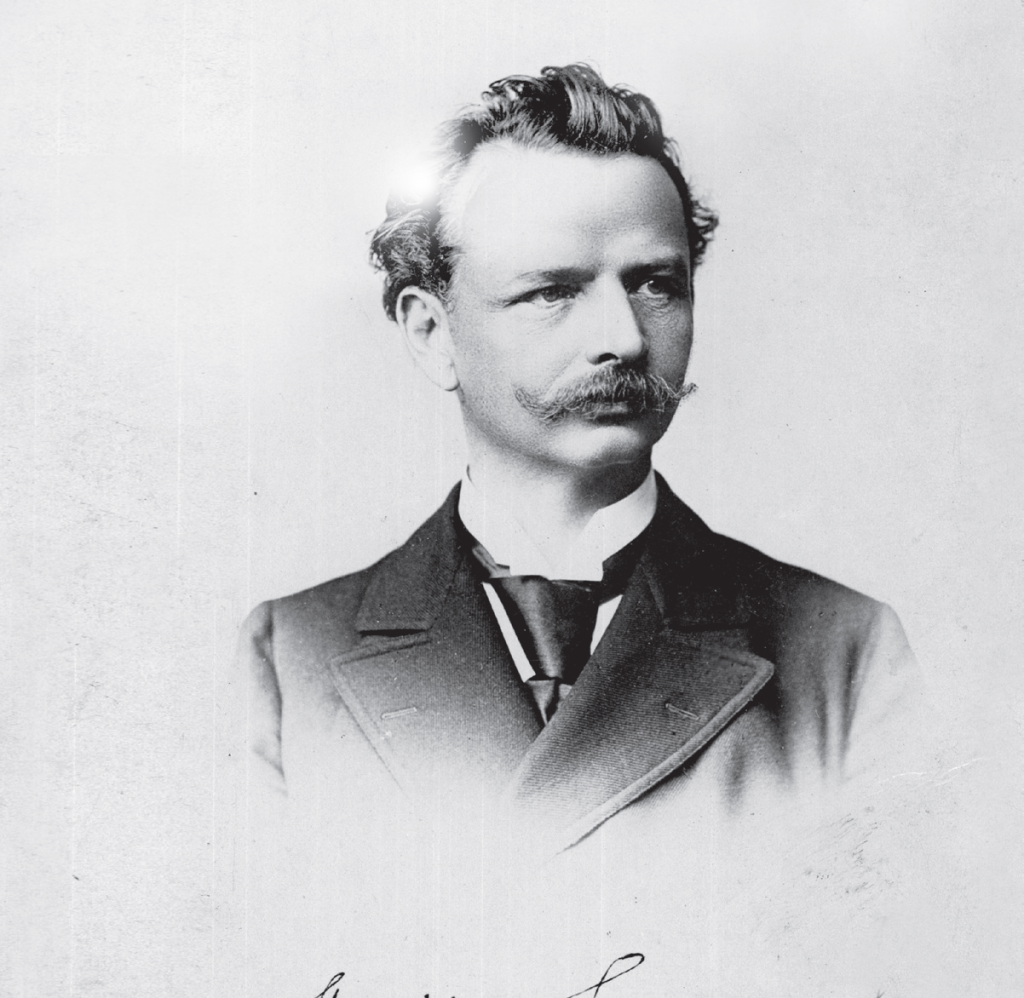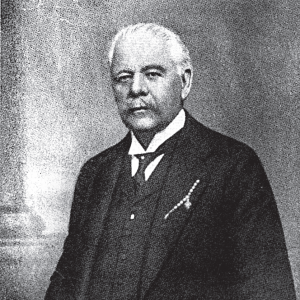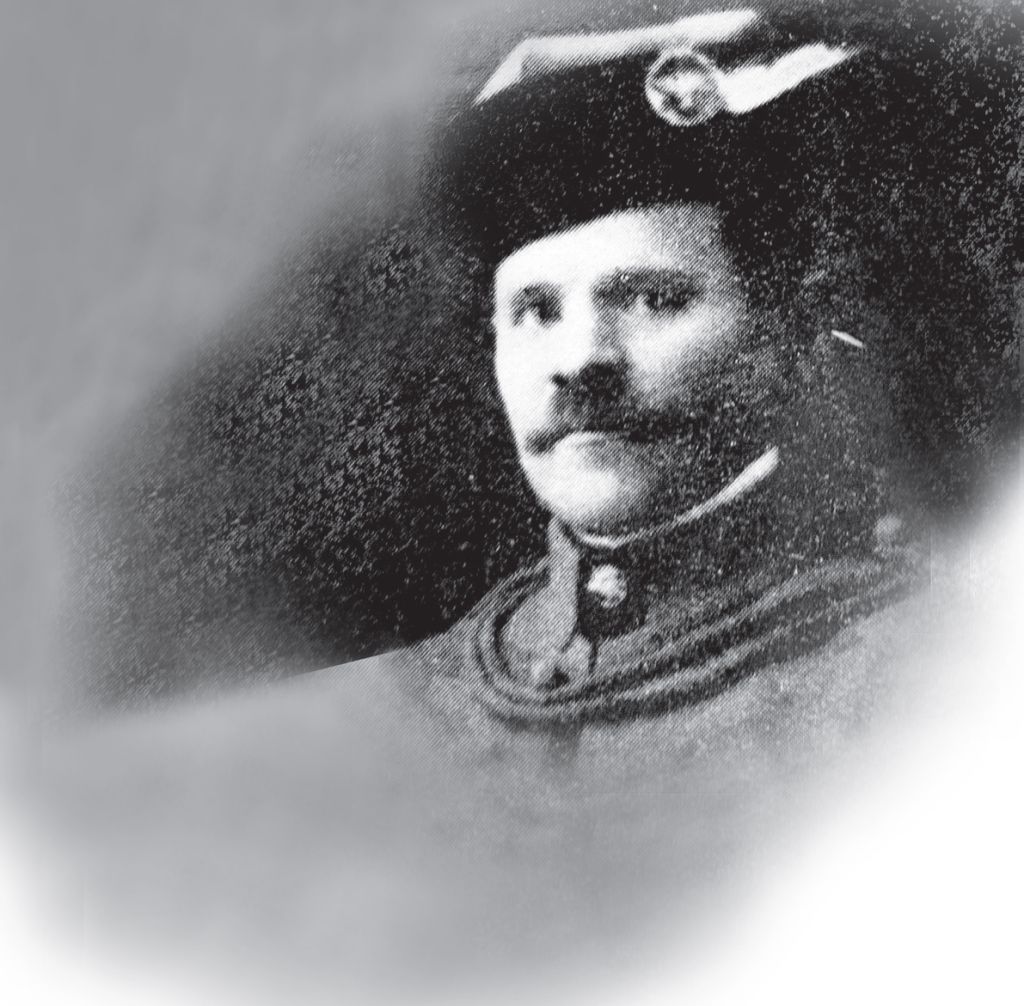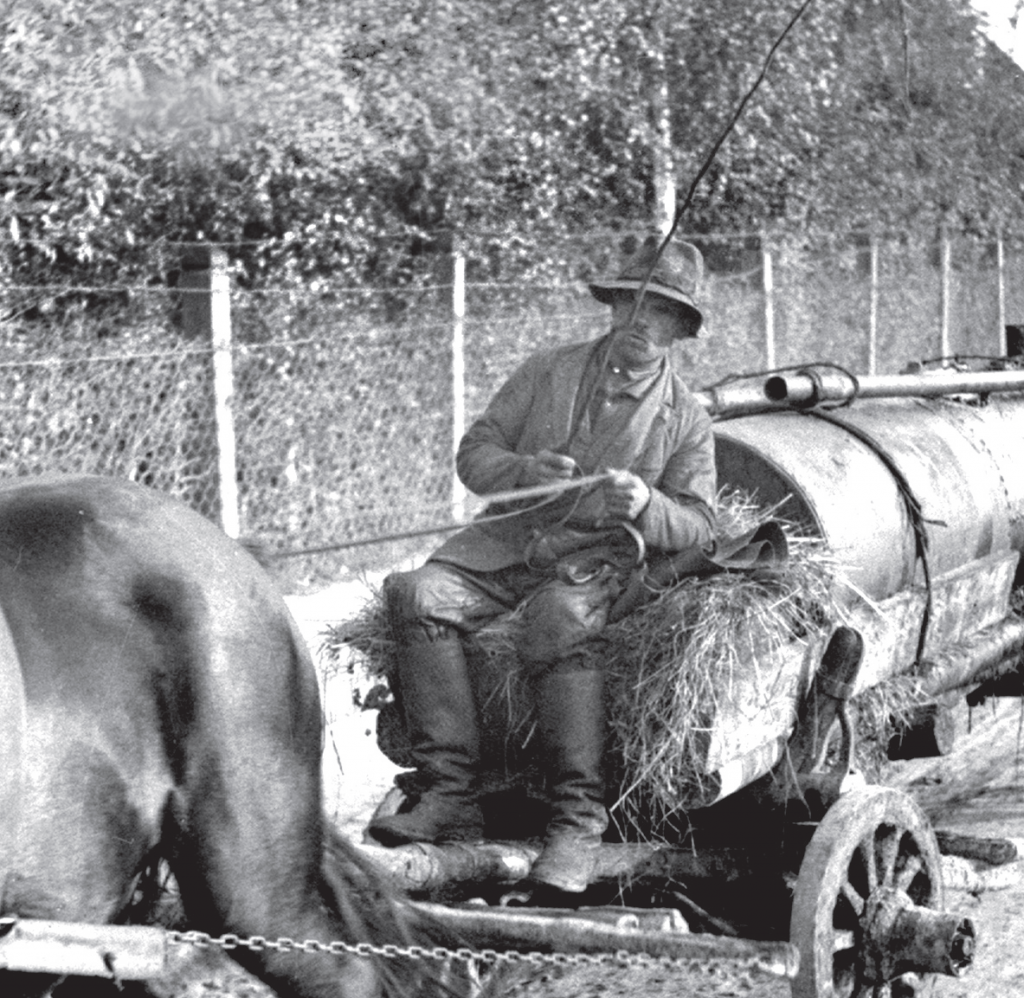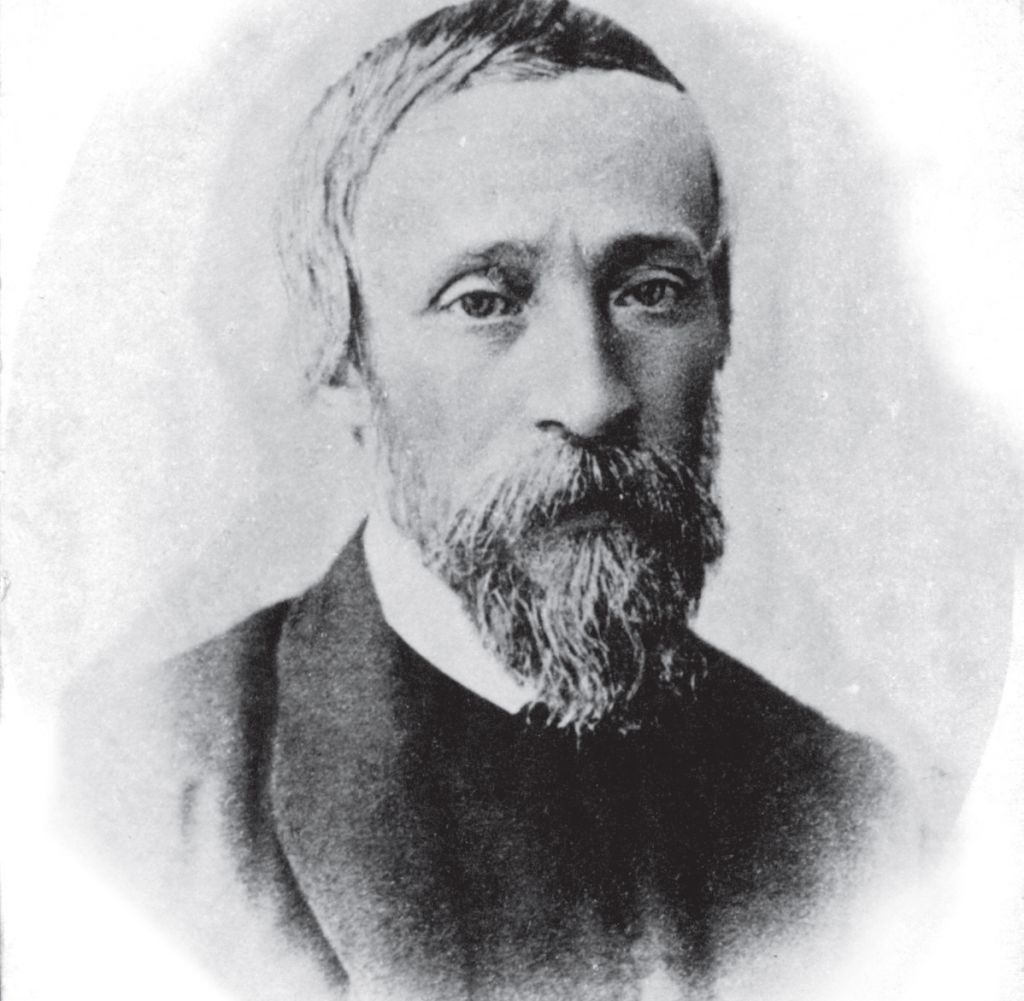Stanisław Jabłonowski was born in Annopol in Volhynia and died in Lviv. His name was established in the history books of the global oil industry due to the event in January of 1852, when he founded first oil mine in the Empty Forest in Siary, near Gorlice. In 1853, his company was noticed by Antoni Schwarz, a councillor of the Kraków Chamber of Commerce, who was touring six districts of West Galicia. This is what he wrote about Jabłonowski’s property: “As production evolves, there is potential industrial value in the natural resource and oil recently discovered at the Kobylanka property of Prince Jabłonowski for production of a mixture known as asphalt. Jabłonowski obtains a previously purified black liquid from the oil. The liquid burns with a clean and beautiful flame and burns out completely. With progress in production, this liquid could completely replace the purified oil currently used in lamps.”
As the son of a wealthy landowner, when he came of age, he received the villages of Polanka and Świerzowa. In 1853, the herd of sheep – a source of considerable income for the Polanka farm – was being decimated by an epidemic. The witch doctor brought in from Bóbrka recommended that the sheep be covered with the black goo, which was plentiful in the local waters. The treatment was unexpectedly successful and Trzecieski turned his attention towards oil. He collected it not only from the waters, but also from excavations. The oil extraction profits made Tytus Trzecieski even wealthier and let him expand as a philanthropist.
Stanisław Szczepanowski was born in Kościan, Wielkopolska, and died in Nauheim. He studied at the Vienna Institute of Technology, the École Centrale des Arts et Manufactures in Paris and studied chemical technology and economics in London. In 1877, he received British Citizenship and was invited on a business trip to India with the Prince of Wales, the heir to the throne and future British King Edward VII. Szczepanowski refused. He chose Galicia instead, where he arrived in 1879 to explore oil and with a social and economic mission. In 1879 he went to Galicia.He founded an oil mine in Słoboda Rungurska, which produced 60 percent of Galician oil. While he grew his business, Szczepanowski also developed social and political activity in Galicia. He built houses for workers, opened cooperative stores and community houses, organised vocational training, and promoted the concept of cooperativeness as the publisher of the Self-Help weekly and president of the Union of Gainful and Economic Associations.
William McGarvey was born in Huntingdon, Quebec, Canada and died in Vienna. The 1866 Canadian breakthrough discovery of oil deposits was also important to McGarvey. The young man first worked as a drilling intern and then opened his own extraction company. In 1881, he travelled to Europe. He opened the most innovative refinery of the time and the famous drilling machinery factory in Glinik Mariampolski. With time, he transformed his company into the Galician-Carpathian Oil Association. McGarvey held shares in numerous Galician companies, which opened successive wells. After 1905, he moved to Vienna and controlled his continuously growing oil empire from there.
Jan Rączkowski was born in Siary near Gorlice to a peasant family. He never graduated from any schools. His career can be described as from rags to riches. He was quickly promoted to qualified worker and subsequently to master. In 1888, he took a job at the mine owned by Władysław Długosz. The mine went bankrupt and both men were hired by McGarvey, the founder of the machinery factory and refinery in Gorlice, who sent them to look for oil in Boryslav.
Over the first four years, the drillings were unsuccessful and McGarvey made a decision to cease exploration. However, Rączkowski did not give up and kept drilling. When the auger broke through 12m of rock at a depth of almost 1,000m, he struck top quality oil. This is how Jaś Rączkowski discovered the Borislav deposits. From then on, he had behind-the-scenes influence in the Galician-Carpathian Oil Association. No one knew how to drill below 1,000m as well as him and no one made better decisions when it came to malfunctions. He was a well-known and popular figure in Boryslav and was always eager to help others with advice or money.
Born in Siary near Gorlice. Nicknamed Ropniok (Oiler). In his land, the oil surfaced on its own. Franciszek Haluch collected the oil in a bubbler, drove it around, and sold it as wood tar in Grybów, Poznań, Sieradz, and in Hungary. He counted his money by pots and gave his daughters big dowries. When he was carrying in his pocket the money he made from selling oil, he would throw it in the streets and enjoy seeing children pick it up. The Haluch family had so much money that they shared it by quarters used to measure crops (32 litres). Franciszek Haluch started a family tradition – his grandchildren and great-grandchildren worked as oilmen all over the world.
Ignacy Łukasiewicz was born in Zaduszniki and died in Chorkówka. He is considered as the father of Polish oil industry. In 1848, he started working at Piotr Mikolasch’s pharmacy in Lviv. Łukasiewicz and Zeh used the pharmacy’s laboratory to distil oil and subsequently used the distilled oil in lamps. With assistance from the sheet-metal worker Adam Bratkowski, they developed an oil lamp.The Mikolasch–Zeh–Łukasiewicz partnership (800 Austro-Hungarian guldens contributed by each partner) found a client who purchased 500 kg of oil with oil lamps – a Lviv hospital, which performed the first night operation with light from oil lamps on 31st July 1853. He became a politician and had more influence over the development of the Galician oil industry. He was active in worker protection laws and the construction of new roads and bridges. He also set up welfare funds (illness and accident funds for workers), communal funds (interest-free loans), bathhouses, and childcare centres.


